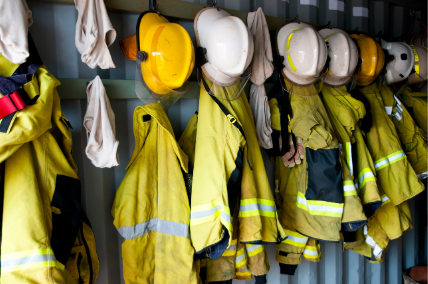The annus horribilis of 2020 saw a number of important cases handed down which involve and have implications for various parts of the Victorian public sector.
This article is part of a series on Victorian Public Sector Employment: Approaching 2021 with 2020 vision.
Also in this series:
- Limitations and learnings from litigation
- Victorian Public Service Enterprise Agreement 2020
- Occupational health and safety update
On 1 July 2020, Fire Rescue Victoria (FRV) came into being, fundamentally changing the structure of Victoria's fire services and amalgamating parts of the Metropolitan Fire and Emergency Services Board (MFB) and the Country Fire Authority (CFA).
This followed many years of calls to reform the fire services and the commencement of the Firefighters' Presumptive Rights Compensation and Fire Services Legislation Amendment (Reform) Act 2019 (Vic) (Reform Act).
On 1 July 2020, the Reform Act (amongst other things) amended the Metropolitan Fire Brigades Act 1958 (Vic) (MFB Act) and the Country Fire Authority Act 1958 (Vic) (CFA Act) to:
- abolish the MFB and establish FRV to take on its functions
- recognise the CFA as a fully volunteer fire fighting service, in line with its original purpose
- provide that the CFA will no longer employ or engage career firefighters or any other paid staff to engage in firefighting duties, save for Chief Officers, Deputy Chief Officers and FRV employees who are seconded to the CFA, and
- extend the boundaries of the former metropolitan fire district to encompass outer urban and larger regional centres, such as Werribee and Springvale, to reflect Melbourne's urban sprawl since the boundaries were previously set.
The Reform Act made provision for the transfer of employment of MFB employees, and CFA career firefighters and CFA integrated stations, to FRV with a guarantee of the same terms and conditions and with recognition of service and accrued entitlements.
To give effect to this guarantee, six separate applications were made to the Fair Work Commission to transfer and vary six enterprise agreements applying to the MFB and CFA, to FRV. These applications were made by Ken Block, the now FRV Commissioner, in his pre-1 July 2020 capacity as the "likely employer" of the former MFB and CFA employees.
Lander & Rogers acted for the Department of Justice & Community Safety on behalf of FRV and Mr Block.
These applications were made under the transfer of business provisions of the FW Act and granted by Gostencnik DP.1 This decision was the first time the FWC has recognised that a transfer of business can include a transfer between an old employer and a new employer occurring under legislation, setting precedent for:
- any person appointed under statute will be the "likely employer" and have standing to apply to the FWC under the transfer of business provisions, even if the position to which they are appointed does not exist at the time of making the application, and
- two statutory agencies will have the requisite connection and arrangement between them for the purposes of section 311 of the FW Act, even if they do not exist concurrently.
Read next:
- Limitations and learnings from litigation
- Victorian Public Service Enterprise Agreement 2020
- Occupational health and safety update
1 Applications by Block, Ken [2020] FWC 3428 (26 August 2020).
All information on this site is of a general nature only and is not intended to be relied upon as, nor to be a substitute for, specific legal professional advice. No responsibility for the loss occasioned to any person acting on or refraining from action as a result of any material published can be accepted.
 Client portal
Client portal













